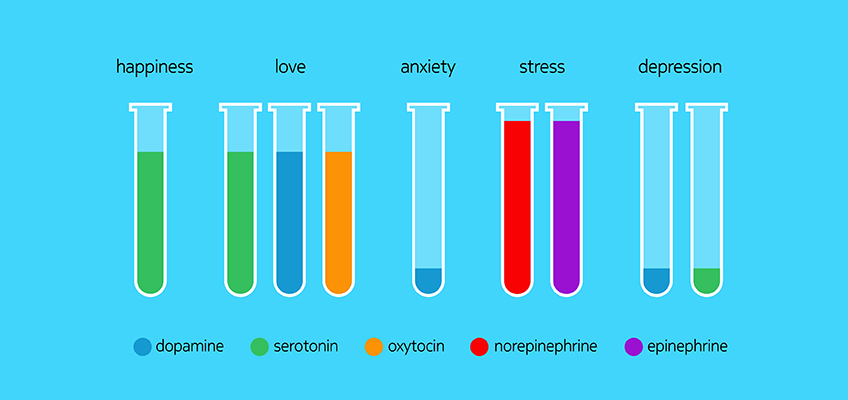Moods are most certainly a byproduct of circumstances and individual context but it’s important to remember that we are also an incredibly dynamic and complicated soup of biochemistry. Our composition is operated by many systems of the body, all of which are governed by chemicals.
I find this not only fascinating but also liberating, particularly on those days that nothing is really ‘wrong’ but I am feeling “off”. Moods aren’t just contingent on the factors of emotional stress or deep personal processing, they are also a direct result of our basic biology…how we eat, sleep, poop, touch, and move. When these conditions are imbalanced or neglected our chemical process is imbalanced and that creates shifts in our attention, intention, and expression.
I do, briefly, want to touch on the concept “Biology of Belief” that was coined from Bruce Lipton’s amazing work connecting thoughts and emotions to the functions of biology. Thoughts have emotions and emotions have chemicals. Yes, our thoughts have a profound effect on our health. However, we can’t always ‘think’ our way out of anxiety, depression, or trauma (the brain in survival mode doesn’t have optimal executive functioning so the system of fight, flight, or freeze wins). For many people, the chemical imbalance has been at the crux of compromised brain development or genetic predisposition which originates long before the full cognitive function is established. (This is also why I think it is important to de-stigmatize medication. Medication coupled with adaptive thinking and behavior can be a holistic approach).
I am a therapist that adheres to the standard of BOTH a top-down and bottom-up approach, which works with the thinking mind and the biological impact of a precarious group of systems and the way information is stored, managed, and moved through the body (without conscious thought). It is essential to consider the quality of cognition in addition to the quality of chemistry.
Let’s focus on happiness chemicals, dopamine, oxytocin, serotonin, and endorphin, and some simple scientifically supported practices that increase their production.
Dopamine, The Reward Chemical:
- Completing a task or achieving a goal (doesn’t have to be extreme, simple is effective)
- Celebrating little wins (focusing on our strengths)
- Practicing self-care (finding power in helping yourself feel good)
Serotonin, The Mood Stabilizer:
- Meditation & Mindfulness
- Spending time in nature (clean air)
- Get some sun
Endorphin, The Pain Killer:
- Lots of laughter (be silly, giggly, and playful, laugh out loud often)
- Enjoy essential oils and pleasing scents
- Have a strong workout and eat some dark chocolate….mmmmmm, chocolate lunges???
Oxytocin, The Love Hormone to Protect & Connect:
- Gentle, healing touch (holding hands, snuggling, making love, massage, petting animals)
- Listen to music (music connects us to the culture of people and shared emotions)
- Give and receive compliments.
Animals are such an important resource for managing stress and depression, particularly in COVID times when many people are severely isolated. Connection and companionship with animals is calming, restoring, and healing. The connection has been scientifically proven to increase Ocitocin. This is why sweet Sully is a support dog for CARE 7 victim advocacy. He is changing brain chemistry and changing lives. Sully loves to love and loves pets (and treats, of course). 
All of these happiness chemicals are stimulated with regular sleep, regular movement, and clean, high protein foods, foods low in saturated fat and sugars, limited caffeine and alcohol, and daily intake of probiotics.
Perhaps these practices will be more accepted and more regularly integrated into our day-to-day routine when we consider the gravity of their impact on the body and mind. These tools really do change our physical and mental health.
Best, Robin
